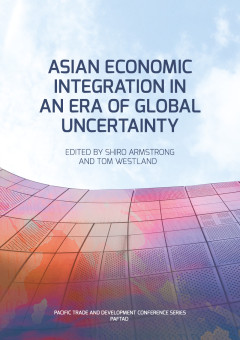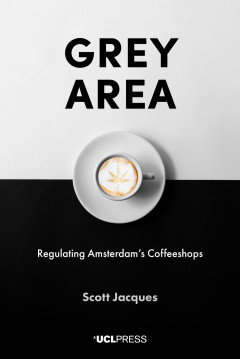Ditapis dengan

Decision making under deep uncertainty :from theory to practice
This open access book focuses on both the theory and practice associated with the tools and approaches for decisionmaking in the face of deep uncertainty. It explores approaches and tools supporting the design of strategic plans under deep uncertainty, and their testing in the real world, including barriers and enablers for their use in practice. The book broadens traditional approaches and too…
- Edisi
- -
- ISBN/ISSN
- 9783030052522
- Deskripsi Fisik
- xiv, 405p. : ill.
- Judul Seri
- -
- No. Panggil
- 658.40301 DEC d

Working and learning in times of uncertainty :challenges to adult, profession…
This book analyses the challenges of globalisation and uncertainty impacting on working and learning at individual, organisational and societal levels. Readership: Educational Researchers and their students
- Edisi
- -
- ISBN/ISSN
- 9789463002448
- Deskripsi Fisik
- -
- Judul Seri
- -
- No. Panggil
- 374.013 BOH w

State of ambiguity
Cuba's first republican era (1902–1959) is principally understood in terms of its failures and discontinuities, its first three decades and the overthrow of Machado seen at best as a prologue to the "real" revolution of 1959. This book brings together scholars from North America, Cuba, and Spain to challenge this narrative, presenting republican Cuba instead as a time of meaningful engagement…
- Edisi
- -
- ISBN/ISSN
- 9780822356301
- Deskripsi Fisik
- 376 p.; 23 cm.
- Judul Seri
- -
- No. Panggil
- 972.9105 STA s

Ethnographies of waiting:doubt, hope and uncertainty
We all wait – in traffic jams, passport offices, school meal queues, for better weather, an end to fighting, peace. Time spent waiting produces hope, boredom, anxiety, doubt, or uncertainty. Ethnographies of Waiting explores the social phenomenon of waiting and its centrality in human society. Using waiting as a central analytical category, the book investigates how waiting is negotiated in m…
- Edisi
- -
- ISBN/ISSN
- 9781000183764
- Deskripsi Fisik
- xv, 212p.: ill.
- Judul Seri
- -
- No. Panggil
- 305.8 ETH e
Uncertainty in deliberate lexical interventions:Exploring Esperanto speakers�…
Language managers in their different forms (language planners, terminologists, professional neologists …) have long tried to intervene in the lexical usage of speakers, with various degrees of success: Some of their lexical items (partly) penetrate language use, others do not. Based on electronic networks of practice of the Esperanto speech community, Mélanie Maradan establishes the foundati…
- Edisi
- -
- ISBN/ISSN
- 9783732992379
- Deskripsi Fisik
- 373p.: ill.
- Judul Seri
- -
- No. Panggil
- 414 MAR u

Asian economic integration in an era of global uncertainty
The Pacific Trade and Development (PAFTAD) conference series has been at the forefront of analysing challenges facing the economies of East Asia and the Pacific since its first meeting in Tokyo in January 1968. The 38th PAFTAD conference met at a key time to consider international economic integration. Earlier in the year, the people of the United Kingdom voted to leave the European Union and t…
- Edisi
- -
- ISBN/ISSN
- 9781760461768
- Deskripsi Fisik
- xxi, 291p. : ill.
- Judul Seri
- -
- No. Panggil
- 338.95 ASI a

Grey Area :Regulating Amsterdam’s Coffeeshops
Coffeeshops are the most famous example of Dutch tolerance. But in fact, these cannabis distributors are highly regulated. Coffeeshops are permitted to break the law, but not the rules. On the premises, there cannot be minors, hard drugs or more than 500 grams. Nor can a coffeeshop advertise, cause nuisance or sell over five grams to a person in a day. These rules are enforced by surprise polic…
- Edisi
- -
- ISBN/ISSN
- 9781787355910
- Deskripsi Fisik
- xix, 186 p.
- Judul Seri
- -
- No. Panggil
- 362.29509492352 GRE S
 Karya Umum
Karya Umum  Filsafat
Filsafat  Agama
Agama  Ilmu-ilmu Sosial
Ilmu-ilmu Sosial  Bahasa
Bahasa  Ilmu-ilmu Murni
Ilmu-ilmu Murni  Ilmu-ilmu Terapan
Ilmu-ilmu Terapan  Kesenian, Hiburan, dan Olahraga
Kesenian, Hiburan, dan Olahraga  Kesusastraan
Kesusastraan  Geografi dan Sejarah
Geografi dan Sejarah